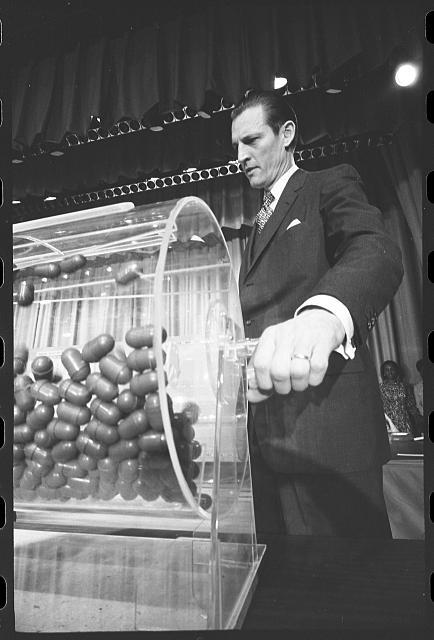A Horizon of Social Possibilities: Paths Beyond ROTC
What did ROTC students do once they graduated from Dartmouth?
ROTC students' ambivalence towards and occasional protest against the Vietnam War drove some to explore meaningful ways to spend active reserve time upon graduation. And, some former ROTC students explored legal loopholes to avoid falling victim to the draft. Many ROTC and former ROTC Dartmouth graduates continued their educational pursuits in graduate school to await their seemingly imminent orders for Vietnam -- a wider trend amongst college graduates not just confined to the boundaries of Hanover.
Those who chose not to continue ROTC would be immediately vulnerable to the draft upon graduation. This was top-of-mind for many former ROTC students, and the certainty of conscription drove many to consider deferment options. For Dartmouth students, this typically manifest in the alteration of educational plans and goals. For example, James Rini '64 graduated from both Geisel Medical School in 1966 and Harvard Medical School in 1968 after dropping Air Force ROTC his freshman year. Instead of "waiting to be drafted," Rini applied for the "Berry Plan" which allowed over 42,000 physicians to defer service until completion of medical training. Rini then enlisted in the Air Force in 1972, as a fully-trained radiologist.
Widespread draft avoidance has become associated with the Vietnam War, those who sought deferment are often the target of vehement criticism. But, young men in the 1960s had a plethora of legal loopholes to leverage because of the institutionalization of the draft. The Selective Service System normalized deferments and almost encouraged them as a tool to shuffle young men towards occupations defined as being in the U.S.' national interest. One survey found that 60 percent of draft-eligible men took some sort of action to avoid conscription, and another survey found that roughly a quarter of men changed their educational plans to gain a deferment. Further, many who sought deferrals did not necessarily subscribe to broader anti-war activist movements. Rather, they quietly deferred based on individual, "common sense" decisions.
Even amongst those who were commissioned as ROTC officers upon graduation, many saw two-fold benefit in pursuit of a graduate degree. They could not only potentially utilize the degree for personal gain to advance their eventual careers, but also could hope that the war ended before their graduate studies concluded. Faced with these benefits, Army ROTC graduate Bruce Jolly '65 described how he took a two-year deferral to attend business school. Upon graduation from business school, Jolly was assigned to the Ordnance Corps. He described the composition of his Officer Basic class:
"I don't know the size of our class, but 50 or 60 similar people. And it was surprising how many of them had graduate degrees. We had lawyers and MBAs, and how many people had gotten their undergraduate degrees and their commissions but had deferred...We were a rather well-educated group. Most of us had graduate degrees."
Case Study: Ivars Bemberis '64
Like many other Dartmouth ROTC graduates, Ivars Bemberis '64 pursued a graduate degree after completing his undergraduate studies. Bemberis attended Dartmouth's Thayer School of Engineering to pursue two graduate degrees after obtaining a Bachelor's of Arts in Engineering Sciences. Bemberis grew up in displaced persons camps in Germany as a result of WWII. Both his father and step-father had ties to military, instilling in him a strong connection to service. Bemberis' background and sense of nation in the U.S. prompted him to join ROTC while at Dartmouth. However, his attitudes towards his service in the Vietnam War is more matter-of-fact than patriotic. He said, "I felt it necessary for me to do military service. Vietnam was coincidental, it just happened to be the war of the period."
This ambivalence towards the war presented itself while Bemberis was an undergrad at Dartmouth. During his junior and senior years, Bemberis was charged with helping recruit students to the ROTC program. He described his role as a recruiter as a "double-edged sword," saying he "did [his] best to indicate the value of the program as opposed to where [students would] be ultimately serving."
Bemberis described his aspiration to attain a doctoral degree, but "the best deal [he] could finagle out of the Army was two years." So, he attended Thayer and obtained two degrees, one in 1965 and the other in 1966:
"And, I went to Thayer. That was the plan...But, why? Because that could count as two years of my contractual duty time."
Like many other Dartmouth ROTC graduates, Bemberis went on to serve in Vietnam with the 41st Civil Affairs Unit, logging 366 days of active-duty service. His experience gives insight into how he and other college-aged men leveraged the legal and structural environment of the time to their advantages.
The recording and transcript of the DVP interview with Ivars Bemberis '64 can be found on the Our Interviews page.



